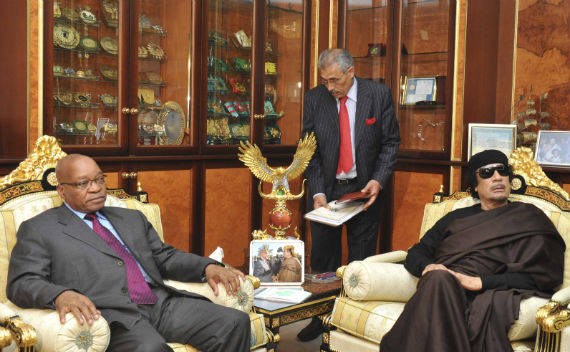Jacob Zuma’s Tightrope Walk on Libya
More on:

South African President Jacob Zuma, speaking at a high-level Africa Union panel on Libya in Pretoria, recently warned NATO against the "political assassination" of Muammar Qaddafi. Following the line of other African heads of state, Zuma said that UN Security Council Resolution (UNSCR) 1973 authorized military action only for the protection of the Libyan people and to facilitate humanitarian relief -- not regime change. Zuma also called for a negotiated compromise between Qaddafi and the rebel Transitional National Council.
The Libyan crisis has gone on longer than most observers expected when South Africa voted on March 17 for UNSCR 1973. Zuma must walk a fine line as he seeks the leadership of the African Union, preserves his liberation credentials -- and yet also looks over his shoulder at the Democratic Alliance (DA), which did better than many expected among black voters in April’s local government elections, despite its image as a predominately white and middle class party.
The ruling party, the African National Congress (ANC), was a liberation movement during the days of apartheid and received funding and political support from Qaddafi. Further, many of Zuma’s ANC constituents will not be happy at the spectacle of NATO bombs apparently intended to bring about regime change.
On the other hand, the opposition Democratic Alliance has welcomed Qaddafi’s indictment by the International Criminal Court (ICC). The party’s spokesman said that Qaddafi has lost all legitimacy and only his arrest and prosecution will lead to democracy and peace in Libya. The DA called on the Zuma government to support the ICC’s indictment and recalled that South Africa’s constitution recognizes international law.
The ICC indictment may make Zuma’s way out -- a negotiated settlement between Qaddafi and the rebels -- more difficult. And the DA will take political advantage of Zuma appearing to be "soft" on Qaddafi, especially now that he is indicted.
More on:
 Online Store
Online Store